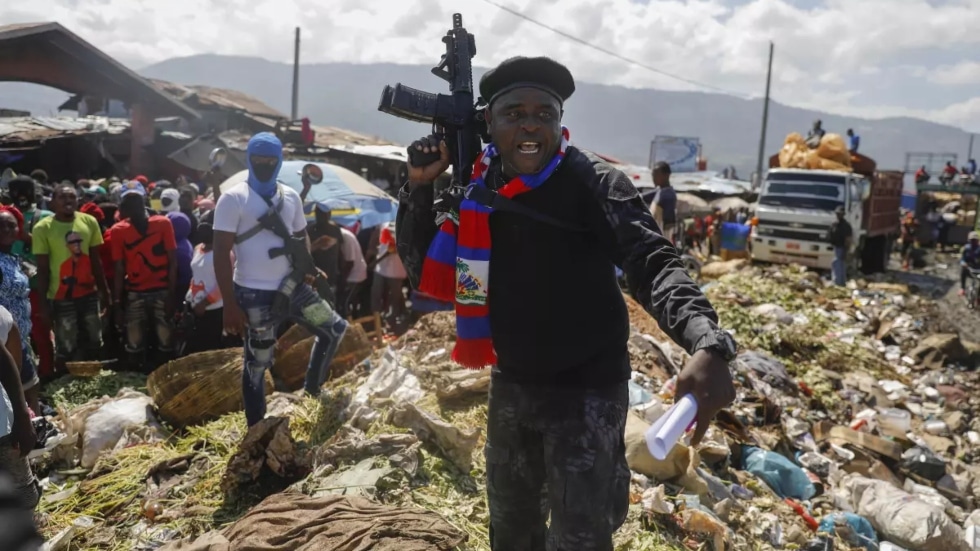Haitian Prime Minister Ariel Henry has announced that he will step down and make way for a transitional government, nearly two years after assuming power in the wake of the assassination of President Jovenel Moise. The move comes as the Caribbean nation is gripped by violent unrest, with armed groups seizing areas of the capital city and clashing with local security forces.
Speaking from Puerto Rico, where he has been stranded for days thanks to chaos in Port-au-Prince, Henry unveiled the decision late on Monday night, saying he would step down “immediately” after the appointment of a transition council.
“For more than a week, our country has experienced an increase in acts of violence of all kinds perpetrated against the population: assassinations, attacks against law enforcement, looting, systematic destruction of public and private buildings,” Henry said in a video statement, asking “all Haitians to remain calm and do everything they can for peace and stability to come back as fast as possible.”
The agreement was announced following a meeting between Caribbean Community (CARICOM) leaders and US officials in Jamaica, with Guyanese President Irfaan Ali saying it would allow for a “peaceful transition of power, continuity of governance, an action plan for near-term security and the road to free and fair elections.”
The transitional council will be made up of nine current or former Haitian officials and other civil society leaders, though will reportedly exclude those under indictment, with past criminal convictions or who have been penalized by United Nations sanctions. Those seeking to run in Haiti’s next election or who “oppose the UN-backed multinational security mission to Haiti” will also be disqualified, according to the Washington Post.
CARICOM leaders did not provide any timeline for the creation of the new council or the country’s next elections, leaving Haiti’s government virtually crippled after lawmakers’ terms expired last year. Though Henry previously agreed to a transition and new elections, the process has been repeatedly delayed.
Months of unrest across Port-au-Prince has seen armed factions seize swaths of the city, engage in turf wars with rival militias and clash with government forces, while some groups have demanded Henry’s immediate resignation.
“We Haitians have to decide who is going to be the head of the country and what model of government we want,” said militant leader Jimmy ‘Barbecue’ Cherizier, a former national police officer who has vowed to overthrow Henry. “We are also going to figure out how to get Haiti out of the misery it’s in now.”
After multiple requests for an international force to help restore order, Henry struck an agreement with Kenya to lead a security mission earlier this month. Though Washington pledged another $100 million to support the project on Monday, bringing total US contributions to $300 million, Kenyan officials have said the plan was on hold until the new transition council takes power.
“The deal they signed… still stands, although the deployment will not happen now because definitely we will require a sitting government to also collaborate with,” Kenyan Foreign Ministry spokesman Salim Swaleh told the New York Times. “You don’t just deploy police to go on the Port-au-Prince streets without a sitting administration.”
Henry took office following President Moise’s murder in July 2021, assuming both the premiership and the powers of acting president in lieu of a popular vote. Though Washington and several Western allies initially backed Henry’s appointment, that support has gradually slipped as he failed to clamp down on violence or organize a path to new elections.

































